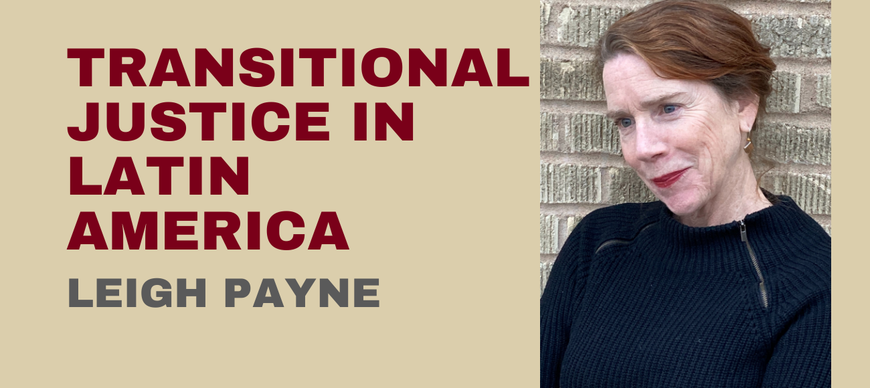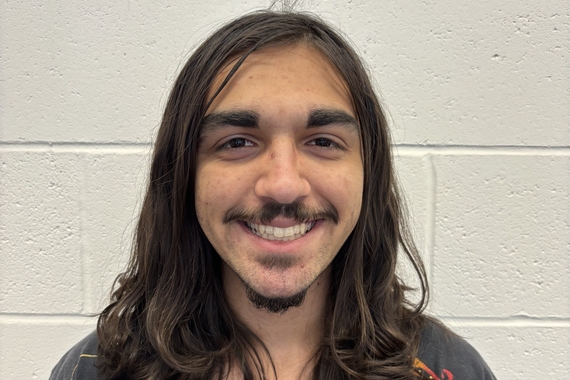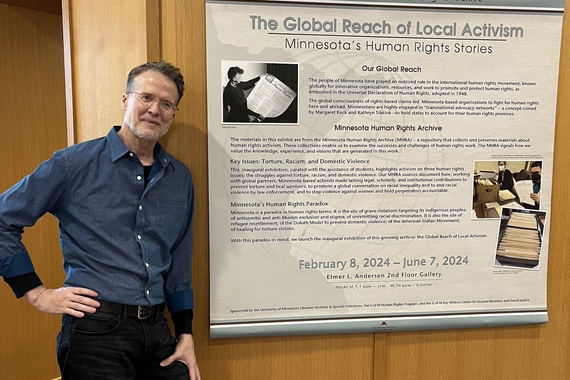Transitional Justice in Latin America
Dr. Leigh Payne of Oxford University is a Senior Research Fellow with the Human Rights Program. She has dedicated herself to the study of human rights in the context of transitional justice. Currently partnering with HRP Director Barbara Frey as part of an international research team, the Observatory on Disappearances and Impunity in Mexico, Dr. Payne continues to bring attention to and examine human rights in Latin America.
Issues of transitional justice -- accountability for past human rights violations -- in Latin America are intimately linked to human rights protections. As mechanisms of transitional justice have been employed over the years in a variety of contexts, studies have been done both on their effectiveness and alternatives. The work of Dr. Leigh Payne, who is a fellow with the Human Rights Program at the University of Minnesota, has been central to such studies. By investigating mechanisms of transitional justice, the effectiveness of their employment with respect to the condition of human rights, and alternative mechanisms of justice that are rooted in traditional practices, Dr. Payne has and continues to contribute to a deeper understanding of justice and human rights.
Dr. Payne’s relationship with the Human Rights Program began when she partnered with UMN Professor Dr. Kathryn Sikkink to study mechanisms of transitional justice and their impact on human rights. In Alternative Accountabilities, which was produced in the second phase of their project, Payne and Sikkink looked at alternatives to truth commissions and human rights trials in the arena of transitional justice. According to Payne, the forms of accountability studied included “different sets of trials, truth processes, reparations, lustrations, symbolic measures and traditional, indigenous forms of justice.”
This collaborative project provided insights into “patterns of transitional justice and revealed their effectiveness” and introduced alternative mechanisms of justice into the mainstream discourse of transitional justice. Interestingly, through their work, Dr. Payne and Dr. Sikkink found that there were “specific combinations of different mechanisms that seemed to have the greatest impact in terms of lowering the level of human rights violations in the aftermath of an atrocity.” Specifically, they found that “even amnesties could lead to improvements in human rights levels when overcome with a combination of trials and truth commissions to provide a holistic approach to addressing human rights violations.”
Dr. Payne is one of three Principal Investigators with the Observatory on Disappearances and Impunity in Mexico, partnering with Barbara Frey and Karina Ansolabehere of the Universidad Nacional Autónoma de México (UNAM). Unlike her previous work which investigated the complexities of the various mechanisms used to realize transitional justice, Payne began to study the dynamics of human rights violations that continue beyond a country’s transition to democracy. Her role in the Observatory has been focused on the construction of the database used to collect information on disappearances, the analysis of the data collected, and conceptual explanations for why systematic human rights crimes continue in the post-transition stage in Mexico and other Latin American countries.
This collaborative project, involving researchers from Oxford, FLACSO, and the UMN, did not look to simply document cases of disappearances, but instead “to investigate the patterns that we could see of who is getting disappeared, who is involved in disappearing them and what happens when these disappearances occur.” Dr. Payne, Dr. Frey and Dr. Ansolabehere co-edited a book on this topic, entitled Disappearances in the Post-Transition Era in Latin America (Oxford University Press, forthcoming), an outcome of their work together in the Observatory.
Having spent so much time dedicated to the field and study of transitional justice and its relationship to human rights violations, Dr. Payne has unique insight into its evolution. She was, in fact, among the first scholars to investigate the effectiveness of and relationship among various transitional justice mechanisms. Today, Payne notes that the field of transitional justice has expanded to include “particular kinds of issues that had not been included in the origins of transitional justice, such as the issue of sexual violence.” In the eyes of Dr. Payne, the identification and confrontation of the underlying causes of violence need more attention and are starting to be addressed through what is referred to as transformative justice. She underscores the importance of attention to the systemic causes of violence asserting that “without removing those underlying causes of violence, we may be moving into cyclical phases of violence.”
In addition to having a broadly informed perspective on transitional justice, Dr. Payne has a unique perspective on the human rights community at the University of Minnesota, having taught here and been a fellow over the course of many years. When talking about the human rights work done by faculty and students at the U, she notes: “I’ve not seen a community that’s so interdisciplinary. Human rights often tends to be located in law schools, with a few people around the periphery. The approach to the question and study of human rights here is fully interdisciplinary and inclusive of students, especially in research. It also has a kind of advocacy dimension… to bring about change, which is pretty extraordinary in any academic community.”



